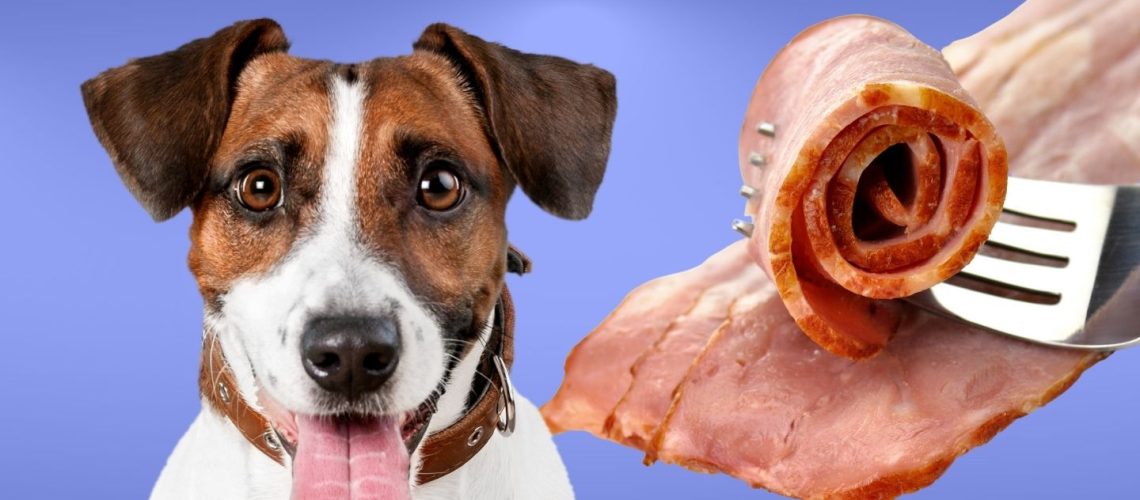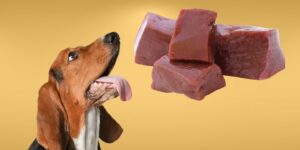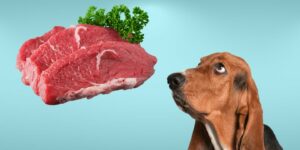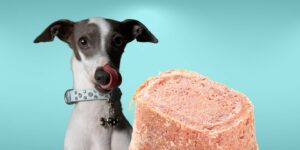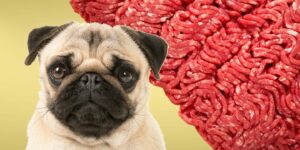Many pet owners are curious about whether turkey bacon is a safe and healthy treat for their dogs. While turkey bacon may be a tasty snack for dogs, it is important to consider the potential risks and benefits before feeding it to your canine companion.
What is Turkey Bacon?
Turkey bacon is a popular alternative to regular bacon made from processed and ground turkey meat, often with added flavorings and coloring to resemble pork bacon. It usually contains fewer calories and less fat compared to pork bacon; however, it can still be high in salt and contain various additives.
Curing Agents and Preservatives
Turkey bacon is often cured and preserved using various agents and additives like sodium nitrite or sodium erythorbate. These substances can be harmful to dogs when consumed in large amounts, causing gastrointestinal issues or potentially more serious health problems.
The Dangers of Feeding Turkey Bacon to Dogs
High Salt Content
Dogs are more sensitive to high salt intakes than humans, and consuming too much salt can lead to salt poisoning, also known as hypernatremia. Symptoms of salt poisoning in dogs include vomiting, diarrhea, excessive thirst, weakness, tremors, seizures, and potentially even death.
High Fat Content
Feeding your dog foods high in fat, such as turkey bacon, can put them at risk for pancreatitis, a painful and potentially life-threatening inflammation of the pancreas. Symptoms of pancreatitis in dogs include vomiting, diarrhea, abdominal pain, and loss of appetite.
Gastrointestinal Upset
Processed meats like turkey bacon can cause gastrointestinal problems in dogs, such as indigestion, gas, and diarrhea, due to their high fat and salt content, as well as the presence of additives.
Allergic Reactions
Though uncommon, dogs can have allergic reactions to food ingredients present in turkey bacon, such as the turkey protein itself or additives used in the product. Allergic reactions in dogs can cause symptoms like itching, skin irritation, ear infections, or digestive upset.
Alternatives to Turkey Bacon
Lean Meats
Instead of turkey bacon, consider feeding your dog small amounts of cooked, plain turkey or chicken breast, liver, or white fish. These lean meats are high in protein, low in fat, and safe for dogs when prepared without added salt or seasonings.
Fruits and Vegetables
Many fruits and vegetables are safe and healthy for dogs, such as apples (no seeds), blueberries, carrots, green beans, and sweet potatoes. Ensure these foods are washed and prepared without any added salt, sugar or seasonings.
Commercial Dog Treats
For the safest and most balanced treats, opt for veterinarian-approved or commercial dog treats designed specifically for dogs. These products are formulated to meet your dog's nutritional needs and can help reduce the risk of potential health concerns associated with feeding human food.
Tips for Feeding Dogs Human Food Safely
- Practice proper portion control to prevent overfeeding and weight gain
- Avoid foods toxic to dogs such as chocolate, grapes, raisins, onions, and garlic
- Always consult with your veterinarian before introducing new foods to your dog's diet
Conclusion
In conclusion, it is generally not recommended to feed your dog turkey bacon. While it may be tempting to share a tasty snack with your furry friend, the potential risks of consuming processed meats and high levels of salt and fat outweigh the benefits. If you want to give your dog a tasty treat, opt for healthier alternatives, and be sure to monitor their intake and consult with your veterinarian if you have any concerns.

